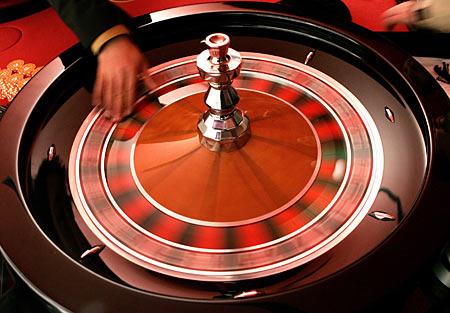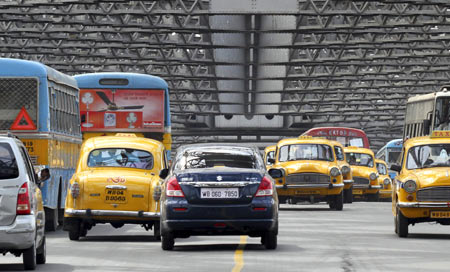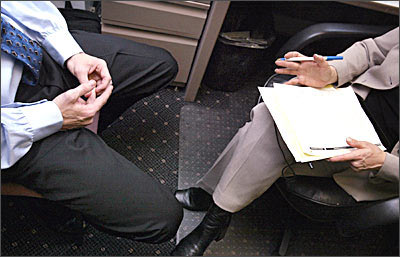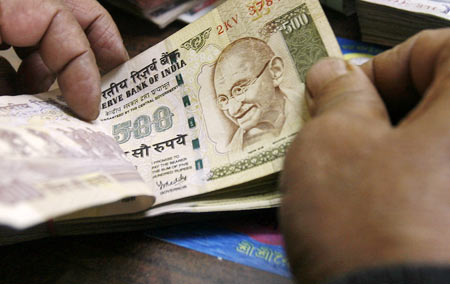Photographs: Francois Lenoir/Reuters
Upper class people have a higher tendency for unethical behaviour, as they are more likely to believe that "greed is good," researchers say.
In seven separate studies, University of California, Berkeley, researchers consistently found that upper-class participants were more likely to lie and cheat when gambling or negotiating; cut people off when driving, and endorse unethical behaviour in the workplace.
"The increased unethical tendencies of upper-class individuals are driven, in part, by their more favourable attitudes toward greed," said Paul Piff, a doctoral student in psychology at UC Berkeley and lead author of the study.
Rich people less ethical, finds study. Are we surprised?
Image: Employees walk inside the "High Limits Area" of a casino on the opening day of Galaxy Macau, the latest resort in Macau May 15, 2011. Some of the world's biggest casino operators are betting that Chinese moms and pops who like to gamble and also want to shop and dine will turbocharge growth over the next few years at Macau, the world's biggest gambling destination. Macau, located on the Southern tip of China and an hour away by ferry from Hong Kong, has so far relied heavily on China's young and wealthy for casino revenues, which totaled about $24 billion in 2010 -- well above what Las Vegas earned.Photographs: Bobby Yip/Reuters
Piff's study is the latest in a series of UC Berkeley scholarly investigations into the relationship between socio-economic class and pro-social and anti-social emotions and behaviours, revealing new information about class differences during a time of rising economic tension.
"As these issues come to the fore, our research -- and that by others -- helps shed light on the role of inequality in shaping patterns of ethical conduct and selfish behaviour, and points to certain ways in which these patterns might also be changed," Piff said.
Rich people less ethical, finds study. Are we surprised?
Image: Traffic moves across Howrah Bridge in Kolkata April 8, 2011. Higher input costs and interest rates are seen crimping demand for cars in India, the second-fastest growing auto market in the world after China, with sales growth expected to more than halve in this fiscal year to 12-15 percent from the peaks scaled a year earlier.Photographs: Rupak De Chowdhuri/Reuters
To investigate how class relates to ethical conduct, the researchers surveyed the ethical tendencies of more than 1,000 individuals of lower-, middle- and upper-class backgrounds. Volunteers reported their social class using the MacArthur Scale of Subjective Socio-economic Status and filled out surveys revealing their attitudes about unprincipled behaviours and greed. They also took part in tasks designed to measure their actual unethical behaviour.
In two field studies on driving behaviour, upper-class motorists were found to be four times more likely than the other drivers to cut off other vehicles at a busy four-way intersection and three times more likely to cut off a pedestrian waiting to enter a crosswalk.
Rich people less ethical, finds study. Are we surprised?
Image: An employee checks samples of M&M's candies at the production line of candy and chocolate maker Mars Chocolate France's plant in Haguenau, eastern France, December 13, 2011. Mars will invest 45 million euros ($59 million) during the next 18 months in its Haguenau plant to increase the production of M&M's candies by 20 percent.Photographs: Vincent Kessler/Reuters
Another study found that upper-class participants presented with scenarios of unscrupulous behaviour were more likely than the individuals in the other socio-economic classes to report replicating this type of behaviour themselves.
Participants in the fourth study were assigned tasks in a laboratory where a jar of candy, reserved for visiting children, was on hand, and were invited to take a candy or two. Upper-class participants helped themselves to twice as much candy as did their counterparts in other classes.
Rich people less ethical, finds study. Are we surprised?
Photographs: Chris Hondros/Getty Images
In the fifth study, participants each were assigned the role of an employer negotiating a salary with a job candidate seeking long-term employment. Among other things, they were told that the job would soon be eliminated, and that they were free to convey that information to the candidate. Upper-class participants were more likely to deceive job candidates by withholding this information, the study found.
In the sixth study, participants played a computerized dice game, with each player getting five rolls of the dice and then reporting his or her scores. The player with the highest score would receive a cash prize. The players did not know that the game was rigged so that each player would receive no more than 12 points for the five rolls. Upper-class participants were more likely to report higher scores than would be possible, indicating a higher rate of cheating, according to the study.
Rich people less ethical, finds study. Are we surprised?
Image: An employee counts Indian rupee notes at a cash counter inside a bank in Agartala, capital of India's northeastern state of Tripura December 31, 2010. India's fiscal deficit from April to November was 1.86 trillion rupees ($41.6 billion), or 48.9 percent of the full-year target, the government said in a statement on Friday.Photographs: Jayanta Dey/Reuters
The last study found attitudes about greed to be the most significant predictor of unethical behaviour. Participants were primed to think about the advantages of greed and then presented with bad behaviour-in-the-workplace scenarios, such as stealing cash, accepting bribes and overcharging customers.
It turned out that even those participants not in the upper class were just as likely to report a willingness to engage in unethical behaviour as the upper-class cohort once they had been primed to see the benefits of greed, researchers said.
"These findings have very clear implications for how increased wealth and status in society shapes patterns of ethical behaviour, and suggest that the different social values among the haves and the have-nots help drive these tendencies," Piff said of the cumulative findings.
The findings have been published in the journal Proceedings of the National Academy of Sciences.







Comment
article